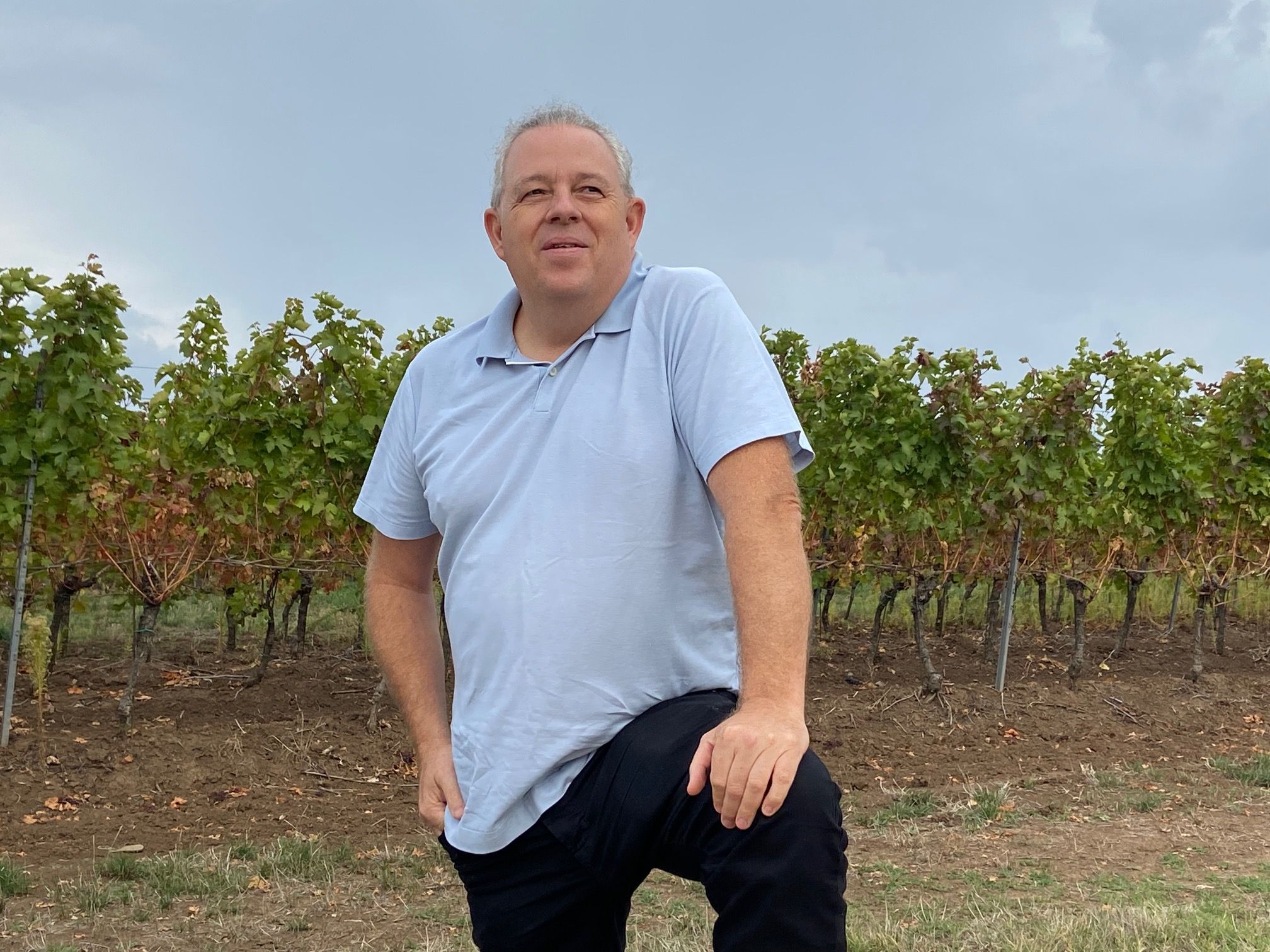Even with 30m litres of wine going through its tanks Cramele Recas is struggling to keep up with international orders for its wine. Philip Cox admits it is a nice problem to have for a winery that started out struggling to sell enough wine to pay all its staff.
The rate of growth at Cramele Recas, Romania’s largest wine exporter, over the last five years has been so fast that even with the prospect of producing 30m bottles of wine in 2021, compared to 11m in 2015, co-founder Philip Cox is worried he won’t have enough to supply all his customers around the world.
Even during our visit to meet him last month at his impressive winery out on the outskirts of Timisoara a major UK supermarket called asking urgently for more wine. A request, he admitted, he would struggle to meet such is the pressure on the 2021 harvest from around the world.
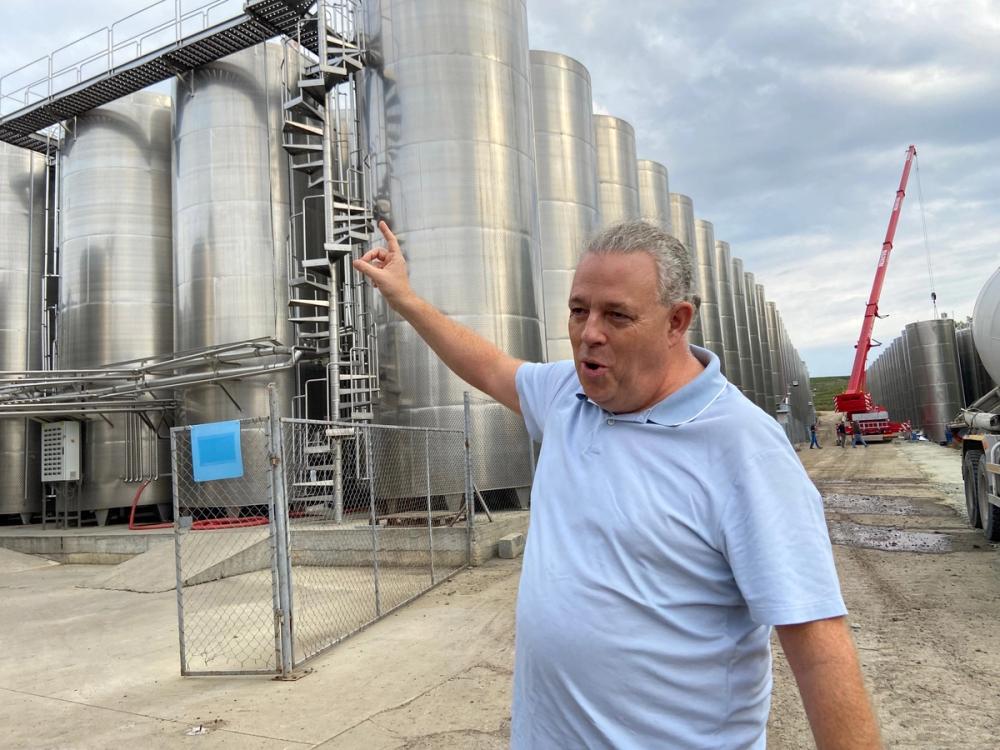
Philip Cox says they are having to install new tanks just to take on a new customer
“People are calling us up asking us for wine and we just don’t have enough,” he said. “That’s the biggest problem we have is deciding who we sell the wine to and who we want to grow the business with.”
If you are only looking to use Cramele Recas for a strategic short term fix, then save yourself a call, Cox and his team are only looking for partners and customers they can build long term profitable businesses with.
The scale of the Cramele Recas has to be seen to be believed with more tanks being built to try and keep pace with a business that has expanded its horizons to become a true global player in the last five years.
Spreading its wings
The catalyst for that change was the vote by the UK to leave the EU in 2016. Up to that point around three quarters of the wine it was making was being bought by a wide range of UK customers, covering all the major channels from supermarkets to independent wine merchants.
Aware, arguably before many of his peers, of the impending increased bureaucracy and supply chain issues there would be supplying the UK post- Brexit, Cox switched the Cramele Recas strategy to look to open up markets around the world that up to 2016 it might have been present in but was not fully supplying.
It means the amount of production going to the UK is now down from 75% in 2016 to just 10%, but that does not meant it is selling any less wine to the UK, it’s just the demands from the rest of the world have gone through the roof.
The Netherlands, in particular, has become a boom market, and is now its number one, followed by Germany. “As soon as the Brexit vote happened I got on a plane and went to see Germany’s biggest importer and now we are their second biggest supplier,” he said.
Fast forward to 2021 and he is now close to that 30m bottle figure and is making 65 different wines, with around 250 different labels – a figure that is going up every month as another customer comes calling.
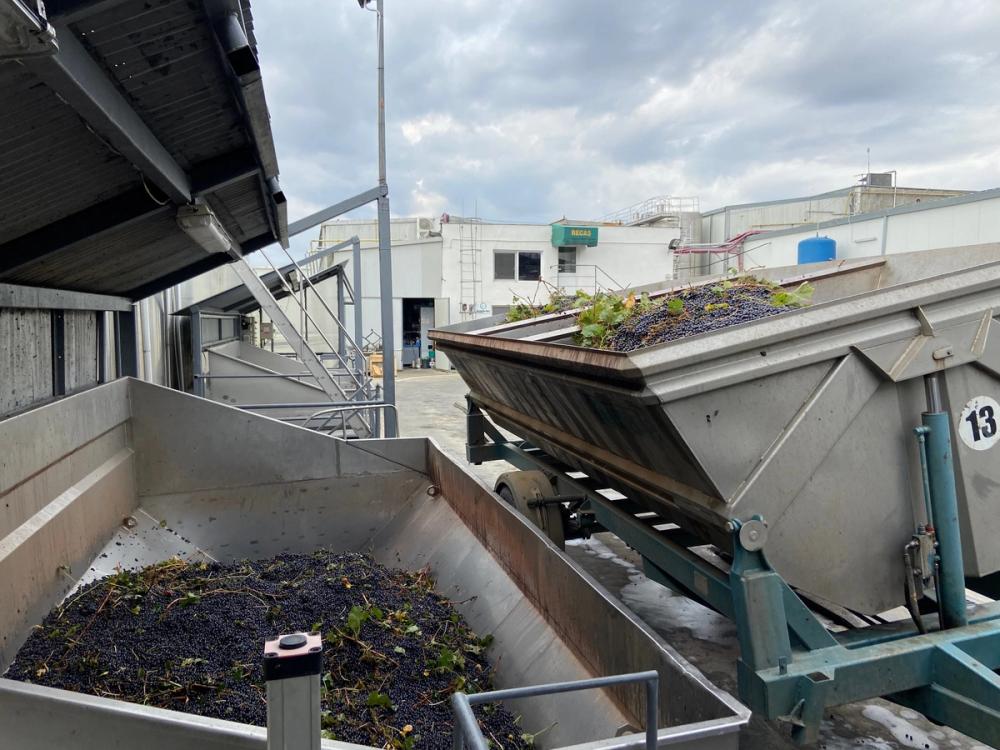
Grapes arriving at the Cramele Recas facility on the outskirts of Timisoara
“Every time we get a new customer we have to put in more tanks,” said Cox, recalling the time Aldi called asking for wine for 2,000 shops. “OK, that’s fine. We just need to find more tanks.”
Some of the juice that goes into this wines might be the same, but the astute planning of Cox and his winemaking team means it is able to tweak and blend a combination of classic global varieties – such as Sauvignon Blanc, Pinot Grigio, Chardonnay and Cabernet Sauvignon – and increasingly indigenous varieties such as Feteasca Regala and Feteasca Neagra.
Cox is unapologetic about the commercial approach he takes to winemaking. Ever since he and his co-founders first started Cramele Recas in 1999 when, with the support of state funding, they took on 700 hectares of land they had to make money from day one if they were to reach the repayments.
“We had to do what we could to sell wine from day one. Now we are just struggling to keep up with demand,” said Cox. “We started with no money and needed to make wine that we could sell quickly to literally pay our staff. We therefore needed to make good quality wines that had wide appeal.”
Trend setter
Which is why he is arguably so astute at following and, at times, leading market trends. Cramele Recas, for example, was the first major producer to make an orange wine at scale with an order that allowed Aldi to get orange wines on a discounter’s shelf for around £8 a bottle.
The natural and orange wine critics scoffed that it was not possible to produce a quality orange wine for so little. But Cramele Recas did.
“We set out to make a commercial natural wine,” explained Cox. “One of reasons for doing so was people kept having a go at us for being just a big winery. We found it hard to be taken seriously. How can such a big winery make quality wine was the claim. So we looked to make natural and orange wine and other premium wines toshow what we were capable of. We are now selling around 120,000 litres of orange wine to Japan and 15,000 litres in the UK.”
Equally it has switched all its production over to vegan by making fundamental changes to how it makes its wine. Commitments that Cox is happy to make, not just because he knows they will do well commercial, but it is also the right thing to do.
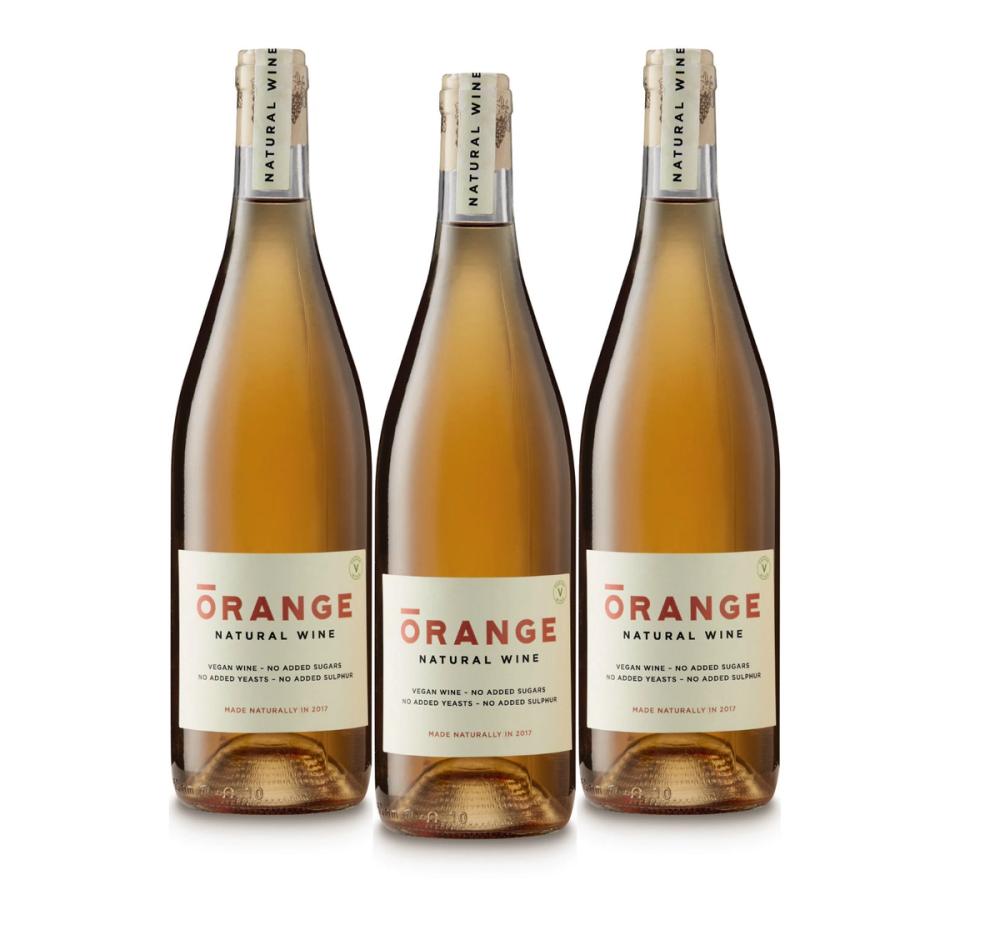
The arrival of an orange wine in Aldi caused quite a stir when Cramele Recas introduced it
2021 juggling act
His immediate concern is juggling volumes produced from the 2021 harvest with all the demand that has built up from customers around the world. He describes this year’s vintage as “difficult but good”.
“It’s been difficult to make wine in 2021. We have had bizarre weather to deal with. The spring was more like winter and we had lots of rain. Then in July and August it was super hot with temperatures up to 40 degrees.”
Those two months of heat, though, have been vital in turning around the harvest and quality of grapes and they were ready to start picking on September 3 with the harvest expected to finish around now.
“It is so hard to keep up with demand for certain wines. Which is difficult, but also a good problem to have,” he added. “We had one customer in the Netherlands ask for 4m more bottles last year which we just could not do.”
Classic varietal wines
Cramele Recas has arguably made it name on producing quality, varietal driven wines for less than £10 a bottle. Cox says its ambition is to make as pure or classic version of every varietal they have. But he admits it is still learning what grows best in Romania’s vineyards and it only has 20 years of vintages to go by.
“We want to get the variety right and be as true an expression of what that variety can produce. To do that is all about good winemaking, keeping your cellars spotless and having excellent grape quality. It all starts with healthy grapes. That’s what ultimately matters.”
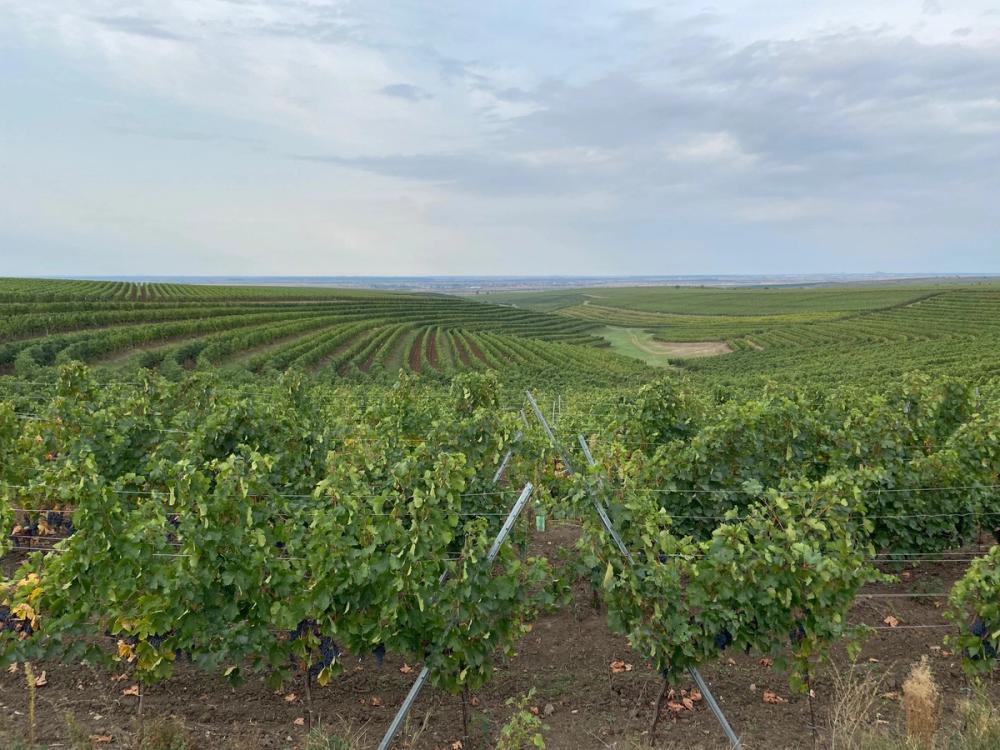
Vines as far as you can see at Cramele Recas
He admits that approach and reputation has made it more difficult to introduce more premium wines, particularly in the UK. “It’s hard for us to get some UK buyers to look at our wine above entry level. But were are really pleased with the work we have done with Majestic as they have been prepared to spend a bit more and the wines are doing really well.”
Cramele Recas claims to be the first producer in Romania to really put his faith in Feteasca Regala and, in particular, Feteasca Neagra, and is now quite proud to produce them as single varietals and they sell well the world over.
“People say that these indigenous wines won’t sell and we have had a lot of importers tell us they won’t work in their country. Particularly the UK. But Tanners wine merchants took then on and are doing really well with them. You just need to take the time to explain them and people will buy them.”
He added: “We have had some help in terms of the clones we plant and analysis the soil types, but there are so many different aspects in our vineyards that we are able to plant and work with so many varieties.
“We feel like we have only just started. Much of where we have planted our vines has been by trial and error. But when you are planting a variety such as Chardonnay you have to the courage of our convictions. It has taken us 25 years to get to this point.”
The pressure on costs and margins is even more severe this year with rising supply chain costs, issues with transport and logistics and the basic costs of everything from ink to cardboard on the rise.
The Cramele Recas model is to control as much of its supply as possible. Around 60% of its grapes come from vineyards it own outright and of the 40% it buys in it has long term partnerships in place so that they ca work with the growers to make grapes just as they want them.
Building exports
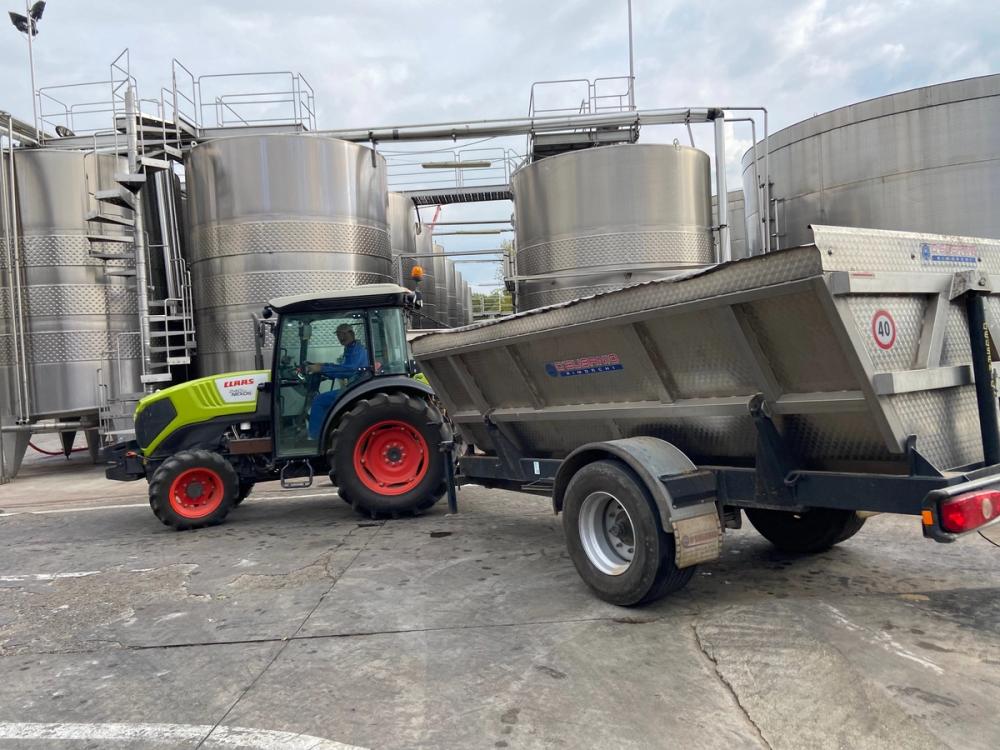
Any room for any more? Cramele Recas has switched its distribution from mainly the UK to a more global operation
When he is not overseeing the winemaking operation, Cox is busy researching and making contacts and finding the right people to work with in new target markets.
“We spend a lot of time researching who the best importers are in each country. In most countries we rely on the importer to run the business from there, so it is very important we choose the right partner.They are the ones with the right retailer and customer contacts.”
It also works directly with major supermarket groups on bespoke projects.
It’s an approach that has allowed it to take a huge share of the Dutch wine market in the last four years building up distribution in 4,000 Penny Market stores, 4,000 Rewe outlets and 2,000 Netto shops, amongst others.
The pace of growth is only speeding up with 25m bottles sold in 2020 and 28m to 30m expected in 2021. Much of that growth is also coming from Romania which accounts for 45% of its sales, thanks largely to its own network of 130 Cramele Recas branded retail stores, some of which run on a bring your own bottle basis and fill up from barrels in the stores.
- Cramele Recas is a supplier partner to The Buyer.
- You can find our more about its wines and its range at its website here.
- This is an extended version of an article that first appeared on VINEX, the wine trading platform.
